Surprising Europe
Posted by By Akogun Akomolafe at 4 October, at 07 : 32 AM Print
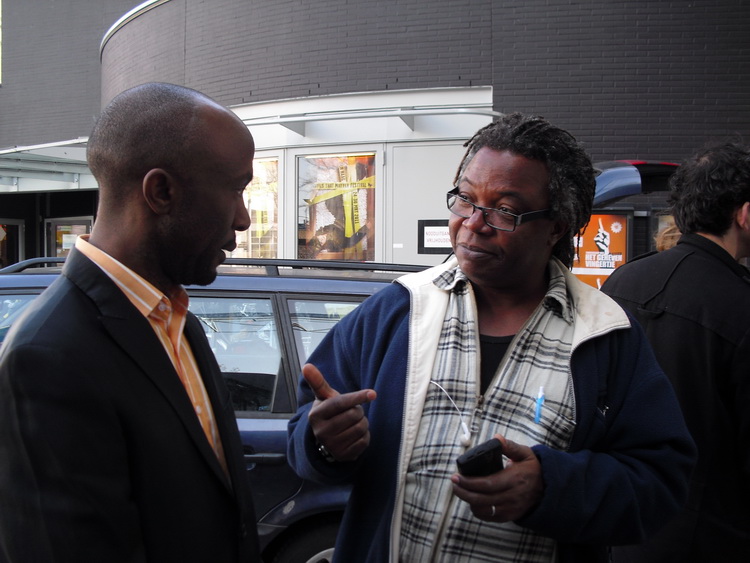
Warning: count(): Parameter must be an array or an object that implements Countable in /home/alaye/public_html/wp-content/themes/Video/single_blog.php on line 56
(With an interview of Ssuuna Golooba)
Film Review & Interview
Surprising Europe: The life and times of Ssuuna Golooba, directed by Rogier Kappers and produced by Jongens van de Wit, the Netherlands — 70 mn documentary and 9-part TV series, 2011.
http://www.surprisingeurope.com/
The history of humanity is also the story about migration. In the final analysis, we are all migrants.
Central to my Yoruba people’s philosophy on human migration is two of their proverbs. One is Omi ni eniyan; the second, Ibi ti aye ba gbeni de, la npe layede.
The first means that human beings are like water that flows wherever it can find its level. The second one means that it is where destination leads us that we call home.
It is probably the knowledge of these proverbs that informed many Africans to migrate to Europe to seek the proverbial green pasture. The natural instinct of every animal is to look for wherever the grass is greener. Europe, in recent history, emptied as much as a third of her population to other climes when the going got tough. It, therefore, remains incomprehensible to many African immigrants in Europe, why the continent that has benefited so much from migration, remains the most hostile to them.
Several thousand Africans have moved and settled in Europe. Some of them managed to build lives that are far better than what they left behind. But for the majority of these migrants, it has been tales of harrowing disappointments. For many of these profoundly disappointed Africans, it is always a case of: “Had I known?”
Many of them had well-paying jobs in their countries with middle-class lifestyles and expectations. But human ambitions being what they are, they wanted more.
Images from Western media like BBC World and CNN are beamed into their living rooms, with commentators constantly harping on “rich” Western countries with out-of-this-world GNP, GDP, and other statistics that paint pictures of a paradisiacal West. The same media portrays Africa as a hopeless, war-torn, famine-overwhelmed, dictators-ridden continent that is forever begging to feed its lazy citizens.
Hollywood also lends a hand with movies that show the bold and the beautiful who, with no apparent means of livelihood, tool around town in kilometer-long limousines, wining and dining the whole day with no apparent care in the world. Images are shown of people putting plastic cards into walls from which money gushes out. Ah, white people are magicians!
There are also the new missionaries on the block, those kind-hearted NGO folks who drive around in big 4-wheel-drive jeeps, hold endless conferences, and talk themselves silly on how to end poverty in Africa.
African immigrants who come on holidays and start spending money like it’s going out of fashion also do not help matters.
These are the images Africans are bombarded with and who does not like better things? Determined to get his share of the wealth of Europe, the African quits his job and sells whatever properties he had accumulated over his toiling years. Some sell the family jewels, houses, and even the farm. Occasionally, loans are contracted to embark on the journey to a supposed El Dorado.
Arriving in Europe, the immigrant is thrown into a severe culture shock from which he hardly ever recovers. The illusion that Europeans are nice and welcoming is the first to go.
In many parts of Africa, especially in the villages, total strangers are generally welcome with huge smiles and a desire to help. The immigrant’s first contact with Europe is with stony-faced immigration officers with the countenance of a wolfhound and the friendliness of a Gestapo. The confounded immigrant wonders what has happened to all those Europeans he saw in Africa with smiles pasted on their faces, as they trample around the continent looking for places to develop.
When he’s finally admitted into the country after a bruising encounter at the port of entry, the senses of the poor immigrant are further assaulted when he finds out that he needed more than his expensive visa to even begin to settle down.
First, the small question of accommodation needs to be settled, and it becomes a major production when he’s asked to produce a residence permit without which he cannot get legal accommodation. Our bewildered immigrant, who had a spacious apartment in his native land, is forced to make do with sleeping in other people’s corridor.
Money in the pocket also happens to dry up fast, especially when it’s not being replenished. The search for a job also helps to drain the pocket. Looking for a job poses its own perilous challenges as our immigrant is told that he needs a working permit. He discovers that there are heavy fines to be paid for hiring illegal immigrants.
Before long, the month-long visa has expired leaving the immigrant living as an “illegal,” with all the attendant perils. The only solution is illegal jobs that pay starvation wages. In addition, the immigrant is constantly on the lookout for the immigration police that could pounce unannounced at any time.
As though he’s not facing enough wahala, the immigrant is also bombarded with requests for support from the family he left behind. Most immigrants do not want to alarm their families about the true state of affairs, so they concoct loads of lies to allay the anxiety of their people.
Illusions dashed, it does not take long before frustration sets in and our immigrant starts doubting his sanity. Forlorn, unloved in a very hostile environment, he must struggle against all odds and an array of overwhelming forces ranged against him.
Going back home is not an attractive option as he, like many, has burnt his bridges when he embarked on the journey. Losing face also remains a big problem in Africa. How do you explain that you are a failure?
For many, there’s also the question of paying back the loan contracted to embark on the journey. Desperate to make ends meet, the immigrant is forced to do jobs that do not even begin to challenge his education or intelligence. Many males take to fraud and other illicit means to stay afloat whilst women are reduced to peddling their bodies.
Ugandan-born photo journalist Ssuuna Golooba is such an immigrant. He came to the Netherlands in 2002 and was confronted with the reality of living as an illegal immigrant. After four frustrating years sleeping rough and cleaning houses and toilets, he decided to return to his country. The question of what he was going back to do necessitated his decision to tell his story in a documentary film. The idea was to make some DVD copies to take back, sell, and hope to rebuild his life in his native land.
Luckily, the producers, Jongens van de Wit Productions in Amsterdam, saw a greater potential in his story. The result of their collaboration is an international cross-media project SURPRISING EUROPE, consisting of a nine-part TV series, a documentary, and an interactive Web site.
The first pillar of the project, the documentary SURPRISING EUROPE, The life and times of Ssuuna Golooba, premiered in The Hague, the Dutch capital, on Sunday, 27 March 2011. Ssuuna’s is a typical immigrant story to which many African migrants in Europe can relate. Unsatisfied with a successful photo-journalism career at a newspaper in Kampala, Uganda, Ssuuna borrowed money to embark of his journey to a supposed El Dorado. He came to the Netherlands and soon enough had the blinkers about a welcoming and prosperous Europe removed from his eyes. A few months after he landed, he ran out money and started sleeping rough.
The film dallies back and forth as it tries to show the complexities and subtleties of immigrant life. We saw Ssuuna worked as a general factotum — as a paper-boy and, when he could get it, as a cleaner. Naturally, the odd and dirty jobs are not sufficient to pay rent and feed and clothe the body. Lack of legal residence papers precluded the prospects of rising above his sorry state.
In the meantime, pressures from his family back home were incessant and unremitting. A sister sent a shopping list longer than her arms. The mother also would like the son to remember her as she has, for having one of her children abroad, become the toast of the village. Every distressed person in the village solicits her assistance.
Despite all these travails, the film shows many Africans plainly admitting that since life for them is always dicey, they will gladly gamble on their chances in Europe. In a pre-screening scene in Ssuuna’s native Uganda, many people were simply fatalistic.
There are serious but hilarious moments like a scene where people go to church to pray for a visa and the priest fervently casts off anti-travel spirits.
SURPRISING EUROPE is a nice, moving human story of one African immigrant’s struggle to juggle various permutations in order to stay afloat in a bewildering and hostile environment.
Migration is a multi-faced and very complex socio-political problem that cannot be addressed in one movie, but the failure to at least show some of the reasons why Europe remains alluring to African immigrants is one of the films weak points.
At the post-screening question-and-answer session, the director honestly admits that theirs was Mission Impossible as they cannot hope to compete with big Western media like CNN that continue to beam their propaganda to Africa.
Ssuuna himself also readily admits that he was not on any evangelical mission to dissuade people from traveling. His mission, he says, was a journalistic job to give people information. What they do with the information is left to every person’s discretion.
That is the reason he chooses as his motto: “Be informed.” After watching the film, those that took their chances and came to Europe will no longer be able to say: “Had I known?”
It was a message well-presented in the film. Only the most credulous will watch SURPRISING EUROPE and still harbor illusions of a rich, welcoming Europe.
Overall, SURPRISING EUROPE is a moving human story that strives to honestly tell the story of an African immigrant.
Interview of Ssuuna Golooba (lead actor)
Femi Akomolafe (FA): First, congratulations on the successful completion of your movie. How do you feel?
Ssuuna Golooba (SG): After five years of hard struggle, it gives a good feeling to see that one has achieved something.
FA: How did you come up with the idea?
SG: Actually, it was a story begging to be told. It is based entirely on my personal experiences. People do not understand what it means to be an illegal immigrant in a foreign land. Not having enough to eat; no good place to sleep, and cannot go to hospital when you’re sick. And the trigger was the fire at Schiphol that killed 11 detained illegal immigrants. I was an illegal immigrant so I easily could have been one of them.
FA: How did you meet the director of the movie, Rogier Kappers?
SG: It is very complicated. I am glad that they saw the potential in my story and that we could work together to bring it to fruition.
FA: From an “illegal immigrant” to a celebrity, that is some transformation. Do people look at you differently?
SG: Ah! If you know me, you’ll know that I remain the person I have always been. I like my privacy and I don’t hug the limelight.
FA: What has been the reaction so far? Do Europeans and Africans react differently to the movie?
SG: The reaction, as I expected, has really been mixed. Many Dutch people are truly shocked that people exist (not live) in such conditions in their country. Many Africans find it courageous that I came out to tell a story to which they can relate. Some of them however think that it will jeopardise their status. But that’s life.
FA: We saw your mother and some family members in the movie; can you tell us what their reactions have been?
SG: Luckily for me, I never hide anything from my mother. I kept her fully aware of my situation at all times. She knew all along what I went through. But the release of the film also brings her tears of joy. She receives calls from people telling her that “Oh, we have seen your son on TV.”
FA: What are your feelings when you hear some Africans say that no matter what you say, they will like to go to Europe?
SG: As I said in the movie, I am just putting out information about what the life of an immigrant is like in Europe; what people do or decide not to do is left to them. Of course, many will take heed and learn from my experience. To those who say that they will risk it, I say “good luck.”
FA: What reasons do you think are responsible for Africans wanting to go to Europe at all cost?
SG: Poverty, corruption, lack of opportunity. Back home, you are limited if you don’t know the right people. So, people say, let me go out and try to make it.
FA: What are your plans for the future?
SG: I plan to finish writing my book. It has taken me too long to complete; I’d like to put more time into its completion. I also will try and take the film to many African countries to let people be aware of life in Europe. We can have question-and-answer sessions with students.
QUESTIONS FOR ROGIER KAPPERS (DIRECTOR, ‘SURPRISING EUROPE’)
Thank you for granting us this interview. Can we begin by asking you to tell us something about yourself? Who is Rogier Kappers?
Ans: Hmm. I can best describe myself as a bit chaotic but creative person. Ideas are forever dancing in my head. The trick is how to balance all those ideas, synthesize them to produce creative works.
To begin, I came from an intellectual and a highly politically-active family. My father was a teacher of Classical Languages – Greek and Latin. My mother taught at Crèche. Both of them are far to the left of the political divide. They were always attending one protest march or the other. I can say that my mother never saw a protest march she didn’t like. That influenced me profoundly, and it shaped my outlook in life. I believe in social justice and have been involved in many social movements. But at this juncture in life, the challenge, for me, is how to live from all those social responsibilities.
FA: What more can you tell us about your background?
RK: Like most youth, I got lost along the way and started searching for myself. I joined a group of hippies; we cracked and lived in unoccupied buildings. I worked as a projectionist at various film houses and fell in love with film. When later I went back to the university, I joined the university TV group. There we had access to top-of-the-shelf equipment and we could give vent to all our repressed creative energies. I majored in Visual Anthropology which, to me, is a nice combination since I am deeply fascinated by human beings and also love making films and documentaries.
FA: For how long have you been in the film business?
Ans: I can say since 1992 when I produced a documentary on Human Rights in Turkey.
FA: How many films have you directed?
RK: I have directed quite a lot, a lot of small ones as well as two very big ones. One of which was ‘LOMAX, the Songhunter which won the Golden Calf award and was nominated for the Emmy Award. That was in 2005. The second is, of course, SURPRISING EUROPE which we have just released.
FA: Are you also involved in other parts of film production, scripting, camera-works, producing or are you involved only with the directing?
RK: I started as a documentary maker; that means that I have to be involved in every aspect of the production. But because of pressure, I try to focus more on the big picture nowadays. But I still do camera works and scripting when it becomes necessary.
FA: Let’s talk about your latest baby, SURPRISING EUROPE, can you tell us the story behind it?
RK: It started in 2006 when Ssuuna Gooloba walked into our office and asked if we could help to film his story. He told a very gripping and harrowing story about his life in the Netherlands. He was a successful Photo Journalist in Uganda who had big dreams about Europe. Unfortunately, his hopes were dashed. It was also at the time 11 asylum seekers died at the center where they were kept at the Schiphol Center. It was his intention to get help to produce about a thousand DVDs to take back with him to Uganda. We saw the potential for a very moving human story and here we are.
FA: What’s the film’s objective?
RK: The primary objective was to let an African immigrant tell his own story. There have been lots of films and documentaries about Africans and migration, but this is the first time an African will actually tell his story, in his own voice and from his own perspective.
FA: What inspired you to take on the project?
RK: As I told you, human beings and their stories always fascinate me. I have also made a film about Human Rights in Turkey, so I immediately saw the potentials for a good movie. Ssuuna’s story is about economic migration, which is also a political question, which makes it a human rights issue. I discovered that many African immigrants did not know that they require residence and working permits; they naively thought obtaining a visa is all that is required to settle to a good life in Europe.
FA: For how long were you busy with the production?
RK: Since 2006, that makes it five years.
FA: I watched the Premiere, and it was quite a crowd. Can you tell us what the response has been?
RK: It has really been positively overwhelming. We were quite taken aback by the enthusiastic response. The great thing is that both Europeans and Africans very much appreciate the film. To many Europeans, it was a sort of an eye-opener. Many Africans called to congratulate Ssuuna on his courage.
FA: What has been the reaction of the media?
Ans: The media response has equally been very positive. Since its release, Ssuuna and I have been on non-stop talk shows on radio, and we have had lots of newspaper interviews. It has been shown on Dutch national television.
FA: Let’s talk about the movie proper. As director, after watching it, what in your opinion are the film’s strong points?
The film has all the ingredients of a great movie. It is, of course, about migration which makes it a human story. It is about a clash of culture. There is element of social, political, economic as well as philosophical questions in the movie. It is a very archetypical story with a universal appeal.
FA: It was an ambitious project to address the complicated issue of human migration. Naturally, you cannot address all the issues in one film, but you failed to address a very central question of why it is African migration that is problematic. Europeans do not think twice about going to other parts of the world in search of greener pasture. Why was this not addressed in the film and also at the post-screening interview you gave?
RK: We had no illusion at all about making a fundamental change in how things are run. We all agreed that it was Mission Impossible to try to change the Global agenda of world powers. But then, what’s the alternative? Sit down and do nothing? At least, we succeeded in bringing an African voice out to speak about an African issue from an African perspective.
FA: Do you have plans for a sequel?
RK: Actually the documentary is one of a three-part project. We have the documentary, now released. We have a nine-part TV series about the lives if African migrants filmed all over Western Europe which we are co-producing with al-Jazeera English , and will be shown on Dutch TV (NED2) in July and on Al-Jazeera Worldwide from the 8th of August. We are currently negotiating that the programme be linked by al-Jazeera to African national broadcaster in countries like Uganda, Kenya, Ghana, Senegal, etc , etc. The third part of the project is the interactive website which will serve as a portal for African immigrants in Europe to tell their stories in their ways. The idea is to create a sort of a movement for Africans on the issue of migration. You can get more information and also subscribe on www.surprisingeurope.com
FA: When are you taking the film to Africa, and in which countries do you intend to show it?
RK: Naturally, we will take the film to several African countries. We are negotiating the financing and soon we hope to be on the road. Oh, actually, we have shown it in Uganda, at the Amakula Festival and at the Makerere University to two thousand students. It was also well received and Ssuuna had a critical question and answer session with the students.
FA: And what project have you lined up for the future?
RK: The next big project is a feature-length documentary plus a website on African Roots (Traditional) Music.
The film is about the life and times of Hugh Tracey (1903-1977) and will be interspersed with the present. Hugh Tracey was an Englishman who spent a lifetime collecting the primordial songs and music of Africa. In the 1950s, with a tape recorder, he made an expedition throughout Africa and recorded a mammoth collection which is today housed at the International Library of African Music (ILAM) at the University of Rhodes in South Africa.
The film traces the footsteps of Tracey and records what is left on the ground. The overriding aim is to document an epoch that is fast disappearing. Music is a very important cultural heritage and should be documented lest it’s lost forever. The project is a kind of follow-up to the famous BBC documentary ‘Disappearing World.’
The large multimedia website will be based on a large map of Africa. Viewers can zoon to any part of the continent and view short film reportages of a particular country and its music and musicians.
It is a big and very ambitious project, the script is fully-developed and we are negotiating for the financing funds. You can watch a trailer on www.dewit.tv/tracey
About the Author
Femi Akomolafe is a passionate Pan-Africanist. A columnist for the Accra-based Daily Dispatch newspaper and Correspondent for the New African magazine. Femi lives in both Europe and Africa and writes regularly on Africa-related issues for various newspapers and magazines.
Femi was the producer of the FOCUS ON AFRICANS TV Interview programme for the MultiTV Station.
He is also the CEO of Alaye Dot Biz Limited Dot Biz, a Kasoa-based Multimedia organisation that specialises in Audio and Video Production. He loves to shoot and edit video documentaries.
His highly-acclaimed books (“Africa: Destroyed by the gods,” “Africa: It shall be well,” “18 African Fables & Moonlight Stories” and “Ghana: Basic Facts + More”) are now available for sales at the following bookshops/offices:
- Freedom Bookshop, near Apollo Theatre, Accra.
- The Daily Dispatch Office, Labone – Accra
- WEB Dubois Pan-African Centre, Accra
- Ghana Writers Association office, PAWA House, Roman Ridge, Accra.
- African Kitchen in Amsterdam Bijlmer
Where to buy them online:
On Lulu Books:
18 African Fables & Moonlight Stories https://goo.gl/Skohtn
Ghana: Basic Facts + More: https://goo.gl/73ni99
Africa: Destroyed by the gods: https://goo.gl/HHmFfr
Africa: It shall be well: https://goo.gl/KIMcIm
Africa: it shall be well
on Kindle books: https://www.createspace.com/4820404
on Amazon books: http://goo.gl/QeFxbl
on Lulu Books: https://goo.gl/SQeoKD
Africa: Destroyed by the gods
on Kindle books: https://www.createspace.com/4811974
on Amazon books: http://goo.gl/1z97ND
on Lulu Books: http://goo.gl/KIMcIm
My Lulu Books page: http://www.lulu.com/spotlight/FemiAkomolafe
Get free promotional materials here:
- Africa: it shall be well: http://alaye.biz/africa-it-shall-be-well-introduction-in-pdf/
A FREE Chapter of ‘Africa: It shall be well’ could be downloaded here: http://alaye.biz/africa-it-shall-be-well-a-free-chapter/
- Africa: Destroyed by the gods (How religiosity destroyed Africa) http://alaye.biz/africa-destroyed-by-the-gods-introduction/
A FREE Chapter of ‘Africa: Destroyed by the gods’ could be downloaded here: http://alaye.biz/africa-destroyed-by-the-gods-free-chapter/
Contact Femi:
Femi’s Blog: www.alaye.biz/category/blog
Website: www.alaye.biz
Femi on Amazon https://www.amazon.com/author/femiakomolafe
Twitter: www.twitter.com/ekitiparapo
Facebook:https://www.facebook.com/alayeclearsound;
Gmail+: https://plus.google.com/112798710915807967908;
LinkedIn: www.linkedin.com/in/femiakomolafe
Email: fakomolafe@gmail.com
Kindly help me share the books’ links with your friends and, grin, please purchase your copies.
Comradely,
Femi Akomolafe
[paypal_donation]


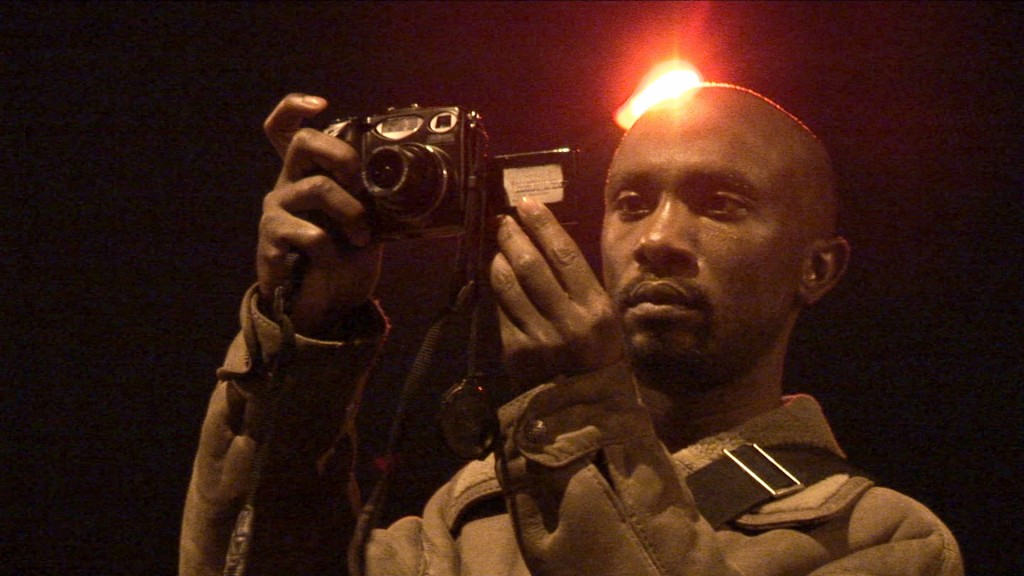
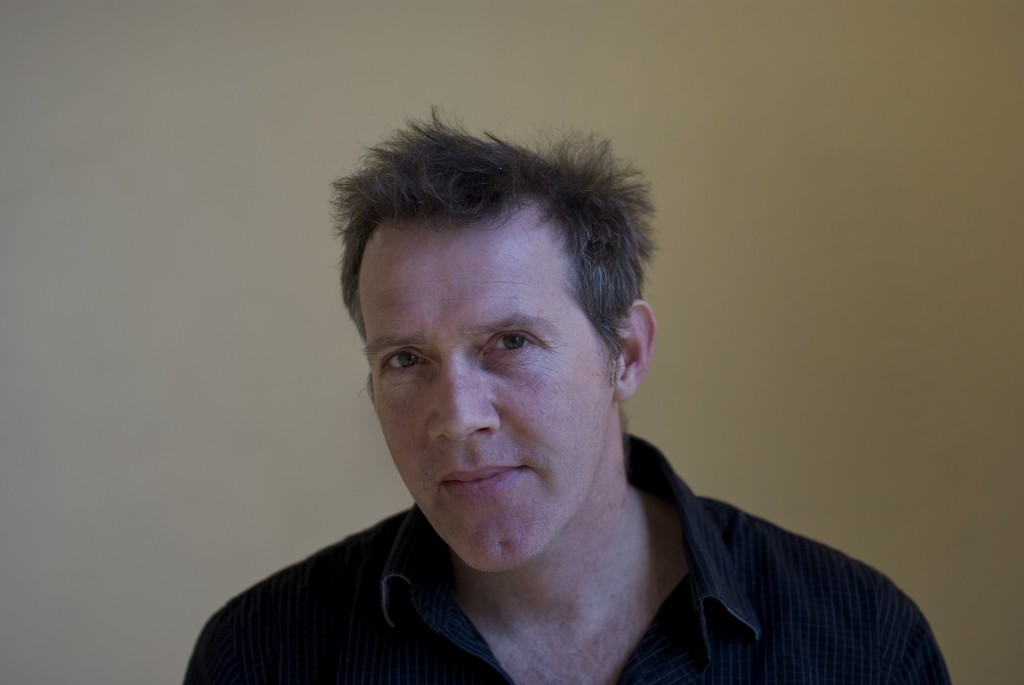
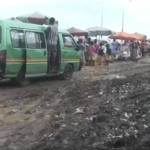


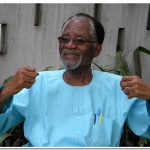
I have read a few just right stuff here. Certainly
value bookmarking for revisiting. I surprise how a lot attempt
you put to create this sort of fantastic informative
web site.
coupon shit, 12 years ago
I just want to tell you that I am new to blogging and definitely savored this blog site. Probably I’m going to bookmark your site . You really have fabulous articles and reviews. Many thanks for sharing with us your blog site.
Lester Allgaier, 12 years ago